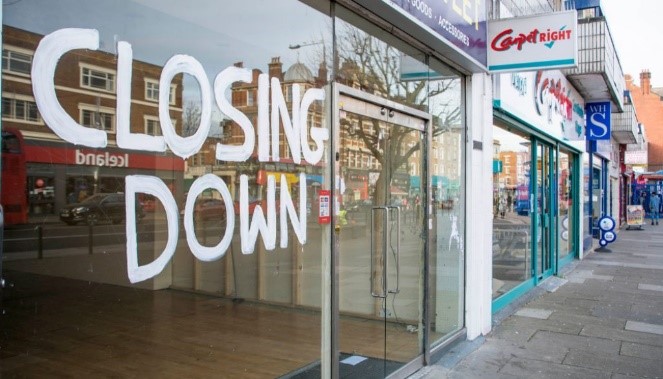We highlighted the initial Covid-19 measures for the high street at the beginning of Lockdown. A raft of wider changes is coming. Although consumer choices, investors, planners and designers will decide their future, leadership, rather than legal change, will drive the best outcomes.
Balanced support
High streets make up around 80% of the UK’s current food, beverage and retail space (Radius, 2020). Around 60% of the UK’s top 22 high streets are ultimately owned by the public (Radius).
The public sector and the wider public therefore have a financial, as well as a place-making, interest in getting town centres back to the future.

While the Government’s temporary ban on statutory demands and winding-up petitions affecting commercial landlords rolls on, the Furloughed Space Grant Scheme (GSGS) put forward by the British Property Federation, the British Retail Consortium and retail property body Revo has not yet been taken up. Under the FSGS landlords agree to a rent reduction for ‘furloughed premises’, with tenants paying a proportion of the bill and the gap being filled by taxpayer subsidies.
Other solutions are needed to ensure town centres are rejevenuated and resilient. Very few of them require a change of law.
Flexibility
- Time-limited permissions work where there are concerns about amenity or other impacts and there is a limited capital investment. They also preserve the legal fallback to the previous use (and so its book value). If all restaurants can operate on a time-limited PD takeaway approval until 23 March 2021 why not be more flexible on other short-life consents?
- Use Classes: Existing short-life flexible consents available under Class D (Part 4) GDPO for 2 years (or, on application under Class V for 10 years) are subject to limitations in floor area, timescale and repeated use. Robert Jenrick’s 30 June 2020 letter to MPs announced the creation of a ‘commercial, business and service’ use class within which fluid changes will be allowed. This may provide a longer and broader right to flex, but (like the residential change of use) will have to be set up with great care to avoid precious uses being lost.
Leadership Challenges
Many other opportunities do not rely on legal tinkering:
- Be Bold: some Primary Shopping Areas (PSA) are simply too big. Authorities and investors will need to embrace shrinking and re-planning them to reset the street scene and ensure chimney pots above (and around) shops that drive footfall. Plan for some of those new homes to be for the elderly and for health services.
Recent review of PSA boundaries through a local plan process should be credited with some protection from new residential PD changes of use.
- Consolidate: successful streets requiring significant investment and intensive management often have diverse tenants, but unified ownership (Regent’s Street, Marylebone High Street, Lamb’s Conduit Street) or strong Business Improvement Districts to curate a vision and deliver on the detail. Many centres are now ripe for acquiring vacant units, using CPO powers where necessary.
- Allow local disruptors to thrive – the butchers, bakers and candlestick makers who have discovered how to deliver locally deserve a light (or at least a quick) touch on planning controls that may boost their business. Equally, we should expect last-mile logistics to exploit space for micro-consolidation and other uses and welcome change where it can drive more sustainable supply chains.
- Support BIDs: Shops, cinemas, restaurants, pubs, and music venues with a rateable value of less than £51,000 will not pay Business Rates in the year from 6 April 2020. That includes art galleries, museums, gyms, nightclubs, theatres and guest houses. Although that does not automatically mean that BID levy is not payable, it is likely to lead to late payment, on top of the non-payment by businesses that are no longer viable. The £6.1million for BIDs (£24,000 per BID) will not be enough on its own to counterbalance that.
- Recalibrating the landlord/ tenant relationship: greater use of turnover rents and trial lettings seem likely. If turnover rents are to be used, there will need to be transparency about turnovers from tenants and pragmatic engagement along the lines of the Government’s Commercial Property Code of Practice.
Larger landlords will also need to embrace a curatorial approach to place and lettings – one of the lessons of Lockdown is that quality of place matters.
- Use powers to clean up rights that have arisen piecemeal and constrain redevelopment and to deal with planning differently.
Our next blog on high streets will highlight the scope for Local Development Orders and other mechanisms to de-risk the planning process in town centres.


